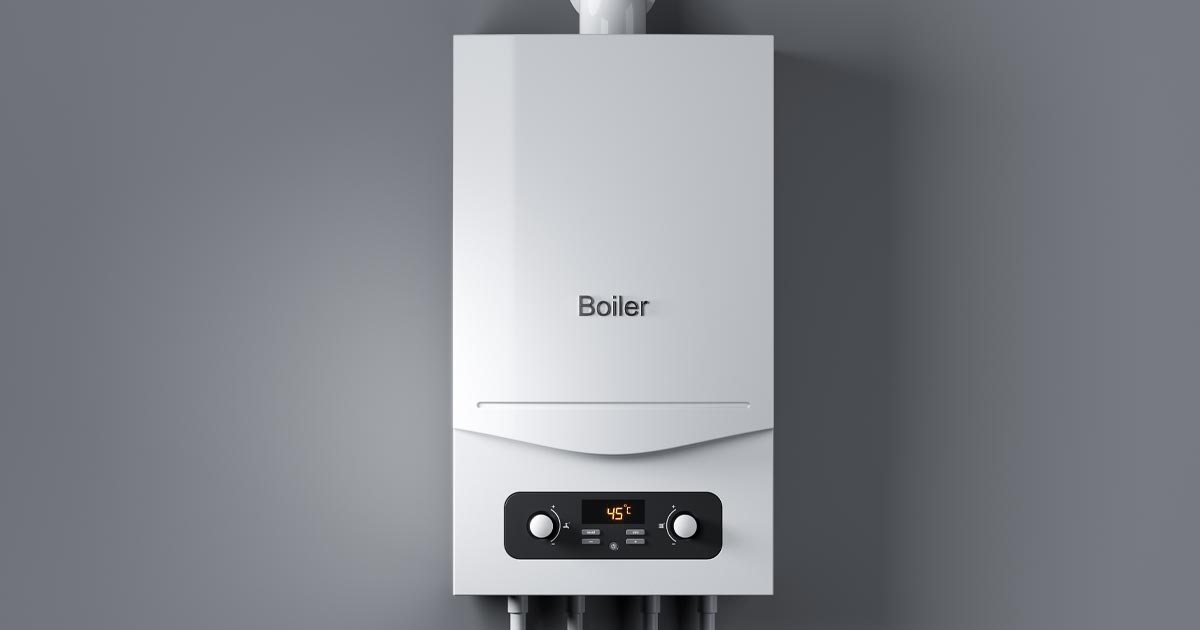When should I replace my boiler?
For a species that relies so heavily on boilers for half the seasonal year, you would think that we would know more about them but understanding boilers isn’t as easy as it should be. Of course there are obvious signs something may we wrong, like having to endure an ice cold shower randomly out of the blue, but we’ve put together a list of less obvious things to need to keep a watchful eye on when your boiler is on the brink of breakdown.
- You’ve had your boiler for more than 15 years.
We’re told to respect our elders but when it comes to boilers that rule gets thrown straight out of the window, The length of each boiler’s life varies, depending on a lot of different reasons but ultimately, your boiler should last up to 15 years. If your boiler manages to make it that long, it’s likely that after that point, it won’t make it much longer.
If your boiler is approaching it’s twilight years, you may want to consider investing in a replacement, despite how much it might be a pain in the neck for you to fork out that money, you’ll have to do it anyway if your boiler breaks down.
Arranging annual service checks will also maintain the wellbeing of your boiler, which will consequently increase the likelihood of it having a long and healthy life, maybe even making it to the big 15.
Think of it like owning a car; to maintain our car and ensure it doesn’t have any malfunctions, we get an MOT, which will prevent any unwanted breakdowns. So, to avoid any nasty, unwelcome surprises this winter, remember to get your boiler serviced.
- Your energy bills are increasing
Are your energy bills making you nervous? Gradually creeping up each month? If so, its likely your boiler needs replacing. A boilers efficiency will usually decrease as it get’s older, leading to more expensive energy bills.
Rather than panicking and scrapping the boiler right away, start by checking it’s efficiency rating. According to British gas, A-rated boilers operate at more than 90% efficiency (https://www.britishgas.co.uk/home-services/boilers-and-heating/guides/replacing-a-boiler.html), while g-rated boilers run at 70% or less. So if your boiler is on a lower rating, it’s time to put aside some money for a replacement before your energy bills take it all
- The blue flame in your boiler has turned yellow
A healthy boiler should burn brightly with a blue flame. If your boiler’s flame is yellow, then you must call an engineer immediately so they can assess the seriousness of the situation.
The reason this is taken so seriously is because a yellow flame could suggest some sort of malfunction involving the carbon monoxide in your boiler. As carbon monoxide is odourless, it can be hard to distinguish but it is vital that it is spotted right away, we’ve unfortunately all heard stories of carbon monoxide poisoning, so keep an eye out for that yellow flame.
- Your boiler is leaking
A leak doesn’t always mean its time to replace your boiler, it can simply mean that there is some sort of issue with an internal component, such as a deal or valve. In this case, it’s time to call an engineer before it leads to other issues such as rust, corrosion, or structural damage to your home – which you’ll want to avoid.
If leaks are becoming increasingly common, it’s a sign that your boiler is not the young whipper-snapper it used to be and needs to be replaced.
Above all, having a leak in your boiler will mean that your heating will be inefficient, leaving you waiting impatiently for the radiators to work their magic.
- Your radiators take longer to heat up
This is not to say every time you’re waiting for the heat to start warming you up, you should panic and get a new boiler. Remain calm.
Sometimes, if your radiators are taking their time to get toasty, it might mean an internal malfunction – point 3 for example – but often it’s a sign of a worn-out boiler that is approaching the end of it’s days.
- Your boiler is giving off a bad smell
We’re not just being pedantic here – a bad smelling boiler can be a sign of a dangerous boiler.
Although Carbon Monoxide is odourless, if you can smell gas it may be a sign of a potential gas leak. If this is the case, immediately turn off your boiler and contact has emergency services on 0800 111 999
Once this fiasco is over, you might want to consider replacing the boiler.
- Your boiler isn’t an “A grade” boiler
As we stated earlier, there is a huge difference in terms of efficiency between A-grade and G-grade boilers. This difference not only means that G graded boilers are inefficient, but it also means that they can be much more costly. To put this into perspective, if you are using a G-grade boiler, for every £1 you spend in your heating bill, you are wasting 30p on lost energy.
This might not sound like much at all, but when you take a step back and consider that amount over the course of a year, replacing your boiler with a more energy efficient model could save you upwards of £305 a year on your heating bills.
- Replacement parts are harder to find
If you’re struggling to find the correct parts for the brand / model of your boiler, it can often mean that your boiler is getting a bit worse for wear.
Take this opportunity with both hands and get your boiler replaced before you end up experiencing one of the previous seven points, which will probably land you with more expensive bills!

